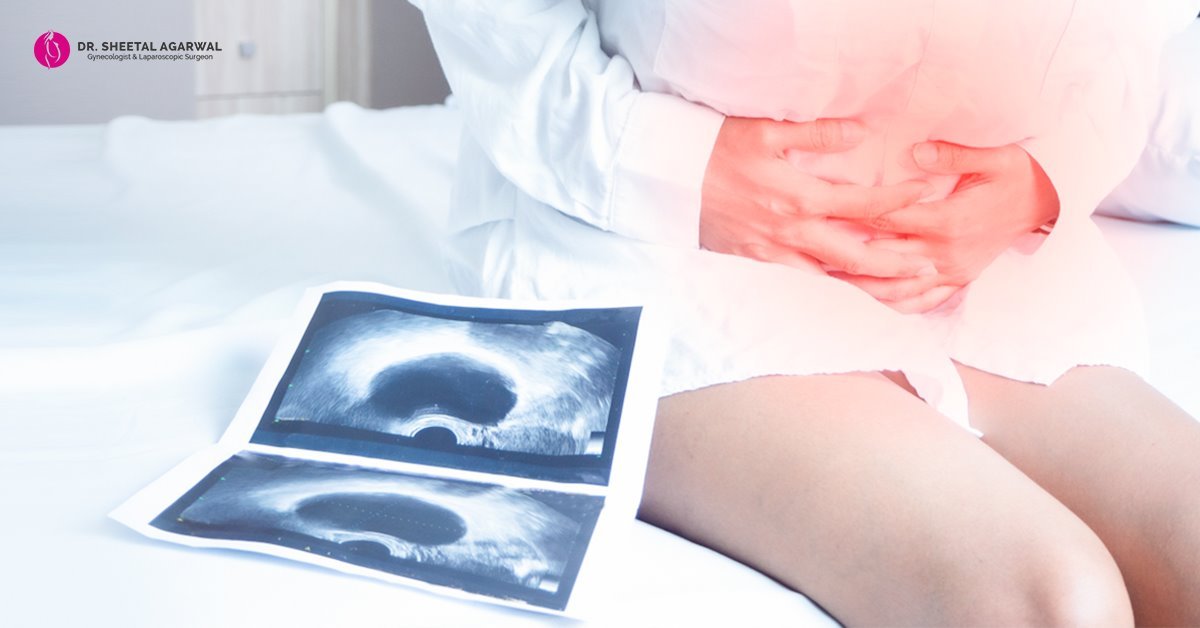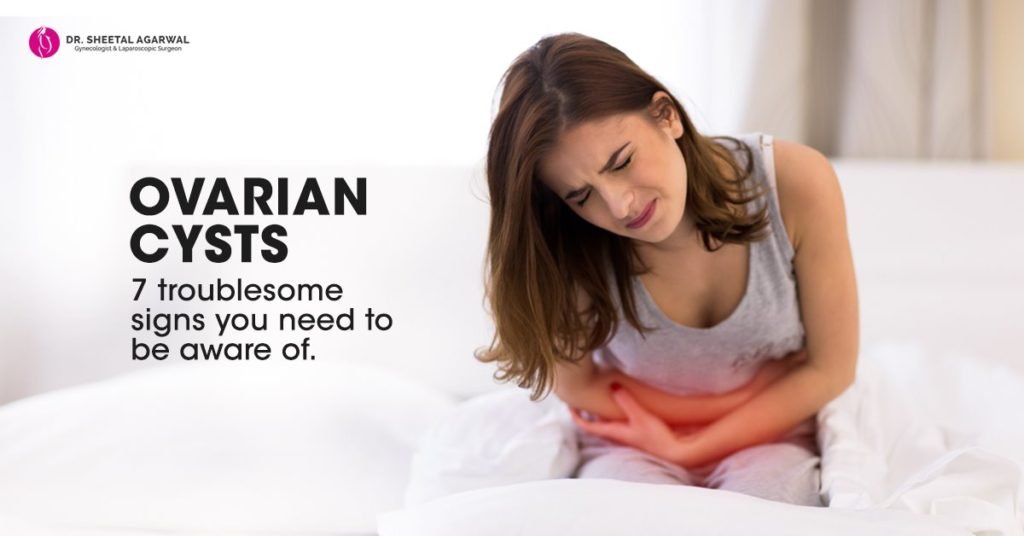Small ovarian cysts are your road to bad health, which is a destination you don’t want to reach. This article is here to help you understand what ovarian cysts are, why they happen and most importantly, what are the signs you can notice while having ovarian cysts that indicate a bigger issue.
What are Ovarian Cysts?
Every woman’s body has two ovaries which produce eggs, also known as ova, during their menstrual cycles. These eggs are developed in follicles that produce hormones estrogen and progesterone. Once, it’s time to ovulate, the follicles release the eggs. But, in some circumstances, the follicles don’t release the egg and keep growing in the ovaries. And this leads to what we call, an ovarian cyst – a fluid-filled sac.
If this inability to release the egg continues with every monthly menstrual cycle, you will have a group of ovarian cysts in no time. Some of these may be small like a pea and some large like a lemon, sitting on your ovaries. While the small ones are harmless, large ovarian cysts may lead to severe issues.
Some types of ovarian cysts are Follicular cysts, Corpus luteum cysts, Dermoid cysts, Cystadenomas, and Endometriomas.
Why do Ovarian Cysts Occur?
Ovarian cysts usually happen because of hormonal issues which also result in irregular menstrual cycles at times. Other possible causes are pregnancy, pelvic infections, and endometriosis.
For the uninitiated, endometriosis is a painful condition in which tissue similar to that present on the lining of your uterus starts growing outside it instead. Another cause of ovarian cysts is the presence of previously formed cysts in the ovary. One growth can lead to many.
7 Signs of Ovarian Cysts that May Lead to Bigger Issues
1. Bowel issues: If the ovaries are large, they may cause undue pressure in the abdomen. This may lead to difficulty in passing stool, thus making you face bowel issues.
2. Urinary issues: The same undue pressure in the abdomen caused due to large cysts may lead to problems in emptying the bladder. In such a case, the woman might feel the urge to urinate, but without being able to.
3. Dyspareunia: the term is used for the pain experienced during vaginal sex in the pelvic region of the body. One of the causes of this pain is the presence of cysts in the ovaries, especially the large ones. That’s because, during the intercourse, the man’s penis might hit the cysts and cause them to leak their fluid, which causes pain. The process is called cyst rupture. While this is more common in younger adults, if women nearing their menopause go through Dyspareunia, it might be a sign of ovarian cancer.

4. Abdominal issues: Ovarian cysts may cause bloating, swelling, or a certain heaviness in the abdomen because of their size.
5. Pelvic pain: You might face pain in the pelvic region before or during your menstrual cycle. This may be at only one side of the region where large cysts have been formed. The pain may be persistent or intermittent, and may even spread to the lower back and the thigh region eventually. If this pain comes with nausea or vomiting, you might have to get yourself checked for ovarian torsion. This is a painful issue in which the enlarged ovarian cysts cause the ovary to move or twist at its place.
6. Irregular and painful menstrual cycles: Cysts can lead to issues like PCOS (polycystic ovarian syndrome) which further causes irregular menstrual cycles. The bleeding in these cycles may be heavier and extremely painful than usual.
7. Hormonal abnormalities: With cysts in your ovaries, and the banned release of the egg the body starts to behave abnormally. It may produce hormones erratically. This may not only lead to more production of cysts but also issues like hirsutism (unwanted and unusual growth of hair in different parts of the body) and also changes in the way your breasts grow.
The Bottom Line
An ovarian cyst can be diagnosed with the help of pelvic examination done through ultrasounds, MRIs, blood tests, biopsy and pregnancy tests. So, if you have any of the symptoms mentioned above you must consult an experienced gynaecologist and get these tests done for confirmation.
If confirmed, you will need proper treatment which is best done by a specialist with years of experience and practice. It’s important because untreated ovarian cysts may lead to far troublesome issues. One such troublesome issue is ovarian cancer which is something you have to stay away from as much as possible.
I, Dr Sheetal Agarwal, am a specialist with almost 25 years of experience, who can help you out of this trouble of ovarian cysts with ease. All of my patients are happy with the treatment they received, and I’m sure you will be too. Consult me if you have any questions, doubts, or are facing any troublesome reproductive issues like those symptoms above.
Book an appointment today to promise yourself a healthy and pain-free future.



I have just had a pelvic examination done and I realize I have a simple cyst in my right ovary…I have also had surgery done before, where my left ovary was totally removed…now I don’t know what to do